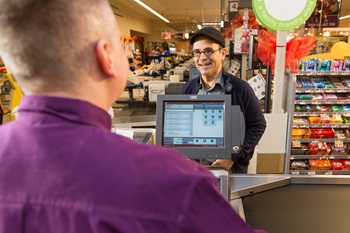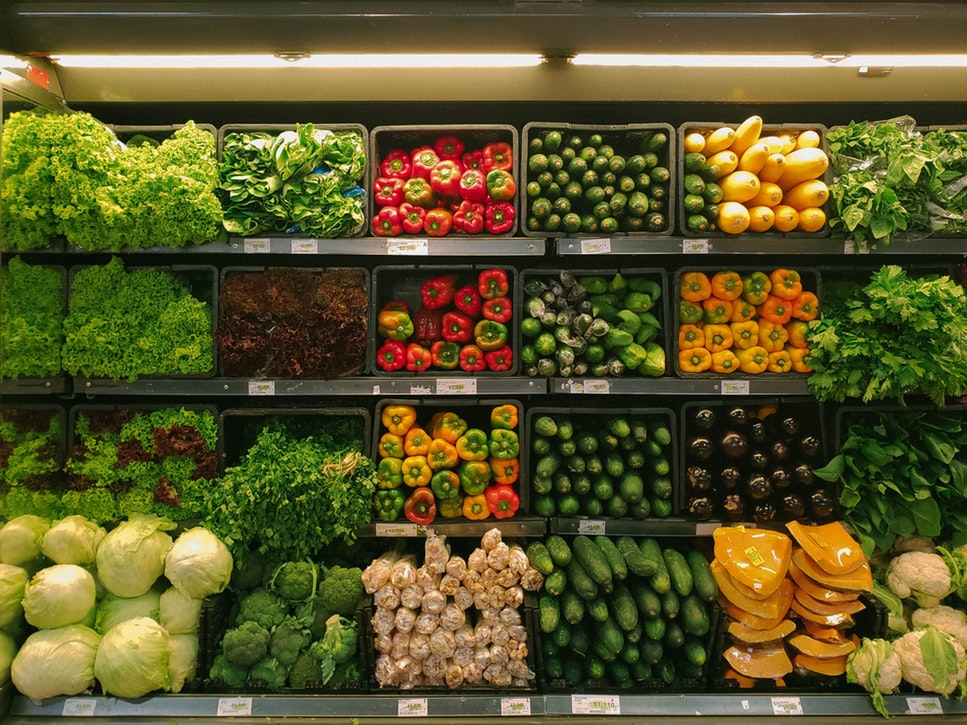By: Carol Abel, Vice President of Education, Food Marketing Institute

Some recent stories in the media have hypothesized that the grocery checkout clerk and deli associate will be replaced by robots and other emerging technologies. For those working in the food retail industry this might raise some alarms, but if we stop and examine the issue a bit further we’ll see the story isn’t as black and white as it may seem. Here are some grey areas to consider:
Convenience vs. Human Interaction - First, I would remind readers that the grocery business is an industry founded on customer service. According to The Food Retailing Industry Speaks 2016 (Speaks) report, excellence in customer service is directly linked to trip satisfaction and higher trip spending, which is in part why 95 percent of food retailers report customer service as a strategy for differentiating themselves in the marketplace. As I was reminded by Steve Pinder, partner at Kurt Salmon Associates, during our recent Midwinter Executive Conference, when it comes down to it, “Customers want to buy something they desire from someone they trust.” While advancing technologies may offer a convenience factor, until the level of customer service machines provide exceeds that of human interaction or even empathy, food retail talent will remain brand differentiators.
Experience vs. Delivery – We also have to keep in mind that as technologies advance, the desire for experiences increases. Take for example a recent interaction with my millennial daughter. She asked me if we could go to the grocery store for our weekly food shopping. When I asked her why she would rather go to the store than just order items online she pointedly explained, “It’s all about the experience, Mom.” Experiences come with attention to the individual’s needs and comforts, which can only be assessed by human to human contact. Would your weekly grocery shopping be as enjoyable if you didn’t talk to the butcher about the meat specials or exchange pleasantries with the bagger? As the grocery industry faces technologies that simplify shopping, it will be even more important to maintain and enhance the pageantry and theater of food shopping.
Jobs of Today vs. Jobs of Tomorrow – Already careers in food retail require far more knowledge and skill with technology than ever before. Perhaps it’s not that the food retail jobs of today will be replaced, but more that food retail workers will need to add new skills as emerging technologies become commonplace. This is one reason FMI will host Future Leaders, June 11 – 13, 2017, in Chicago, where our industry's leaders of tomorrow will undergo an experience that gives each and every one of them a new idea of what will be required of industry leaders in the 21st century.
FMI is committed to helping the food retail industry navigate the rapid changes facing our industry. Part of this effort is a joint initiative with Nielsen exploring the digital food shopper and how to adapt to meet customers’ changing needs. In fact, you can take a brief online assessment and see if your business is ready for the digital shopper.
Artificial intelligence may not be even a consideration in your current digital strategy, but what’s well rooted is a need to earn the trust and loyalty of the shopper. I’m sure we’ll witness multiple technologies in my lifetime that will help get us closer to addressing shopper demand.

 Industry Topics address your specific area of expertise with resources, reports, events and more.
Industry Topics address your specific area of expertise with resources, reports, events and more.
 Our Research covers consumer behavior and retail operation benchmarks so you can make informed business decisions.
Our Research covers consumer behavior and retail operation benchmarks so you can make informed business decisions.
 Events and Education including online and in-person help you advance your food retail career.
Events and Education including online and in-person help you advance your food retail career.
 Food Safety training, resources and guidance that help you create a company food safety culture.
Food Safety training, resources and guidance that help you create a company food safety culture.
 Government Affairs work — federal and state — on the latest food industry policy, regulatory and legislative issues.
Government Affairs work — federal and state — on the latest food industry policy, regulatory and legislative issues.
 Get Involved. From industry awards to newsletters and committees, these resources help you take advantage of your membership.
Get Involved. From industry awards to newsletters and committees, these resources help you take advantage of your membership.
 Best practices, guidance documents, infographics, signage and more for the food industry on the COVID-19 pandemic.
Best practices, guidance documents, infographics, signage and more for the food industry on the COVID-19 pandemic.
